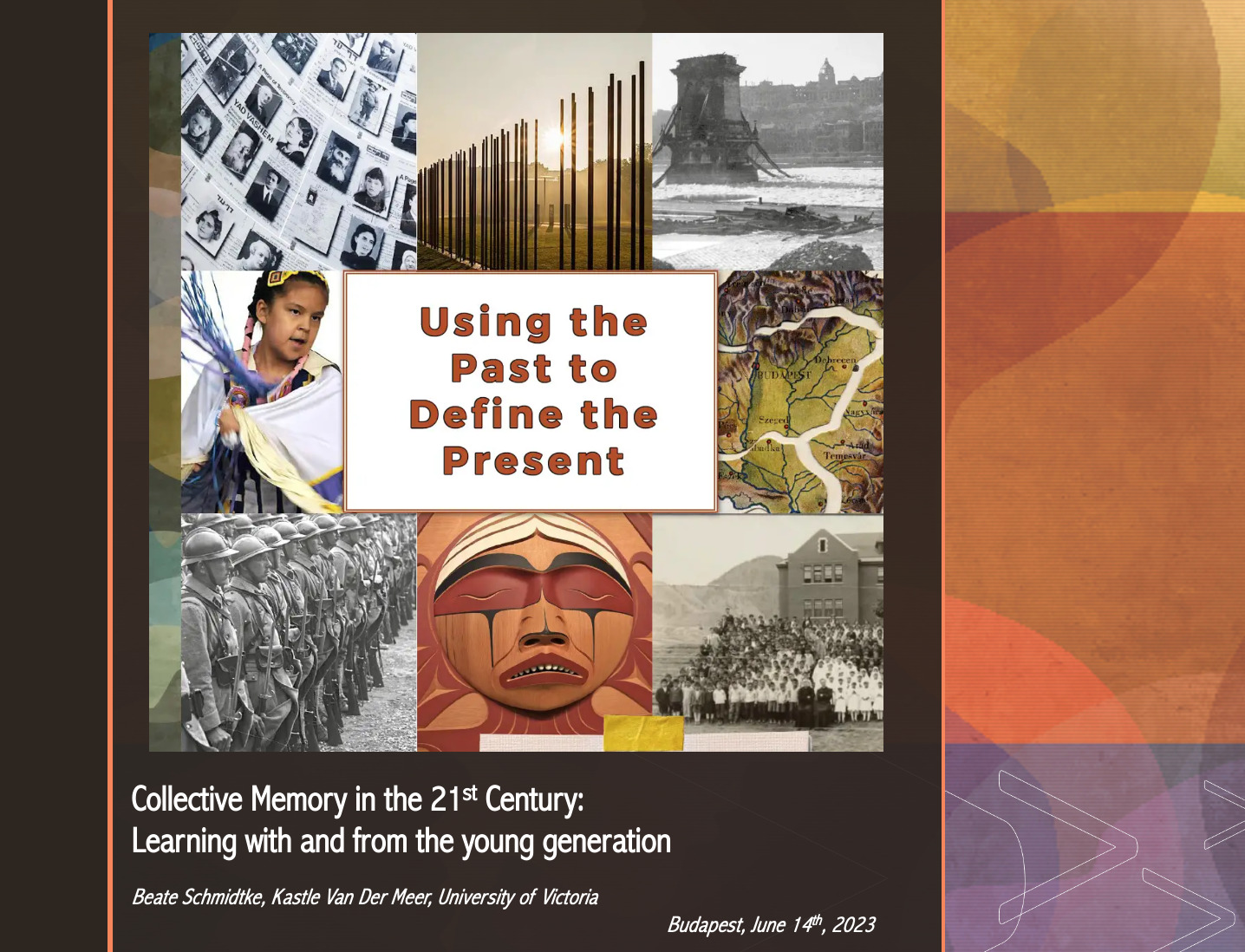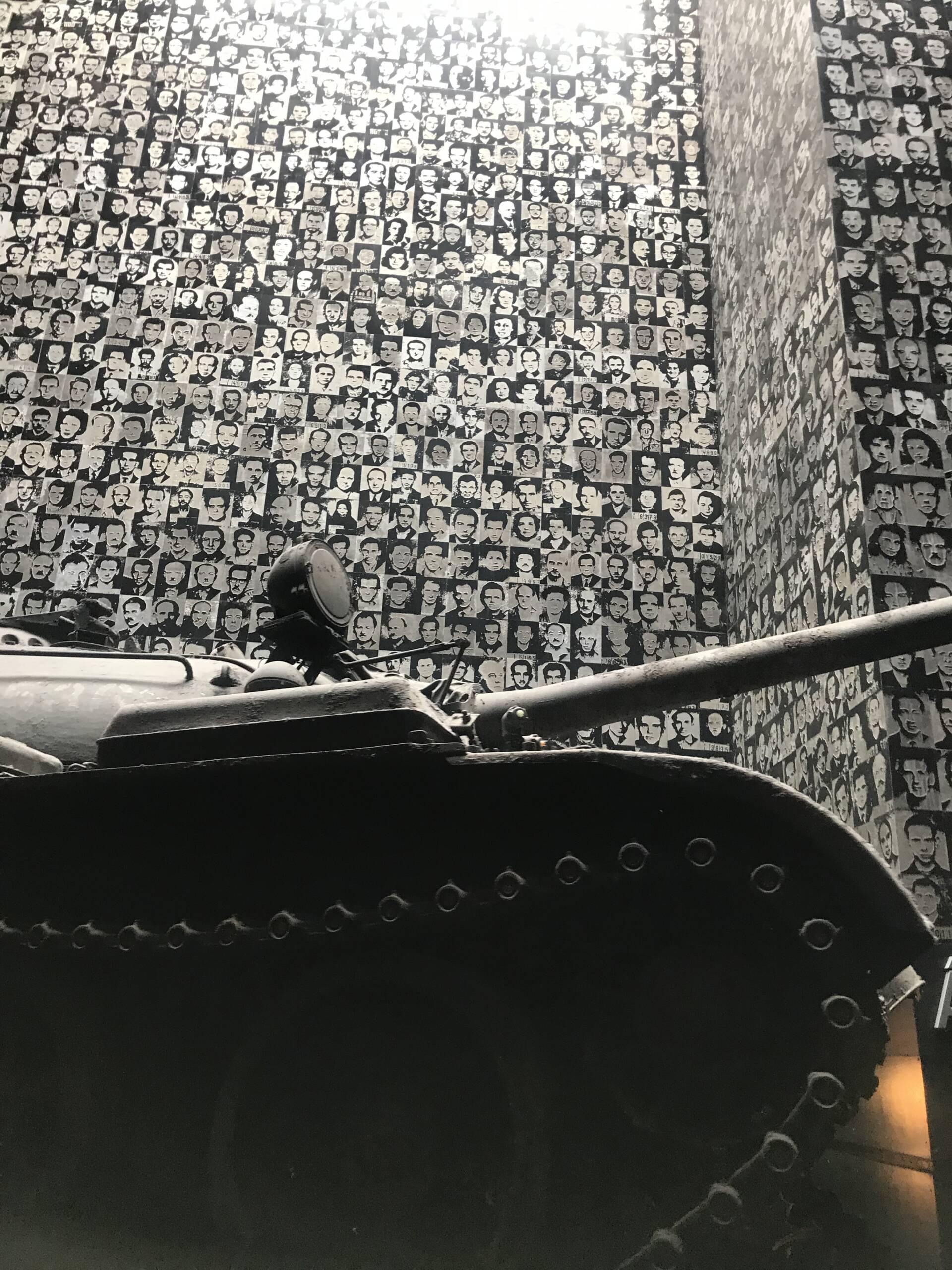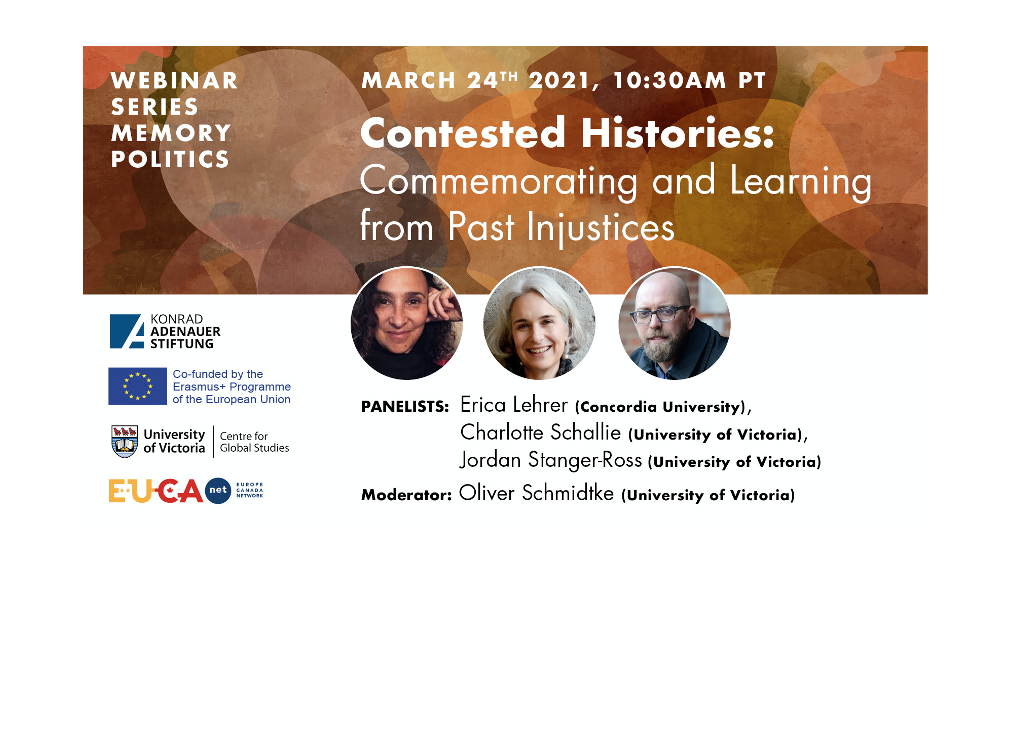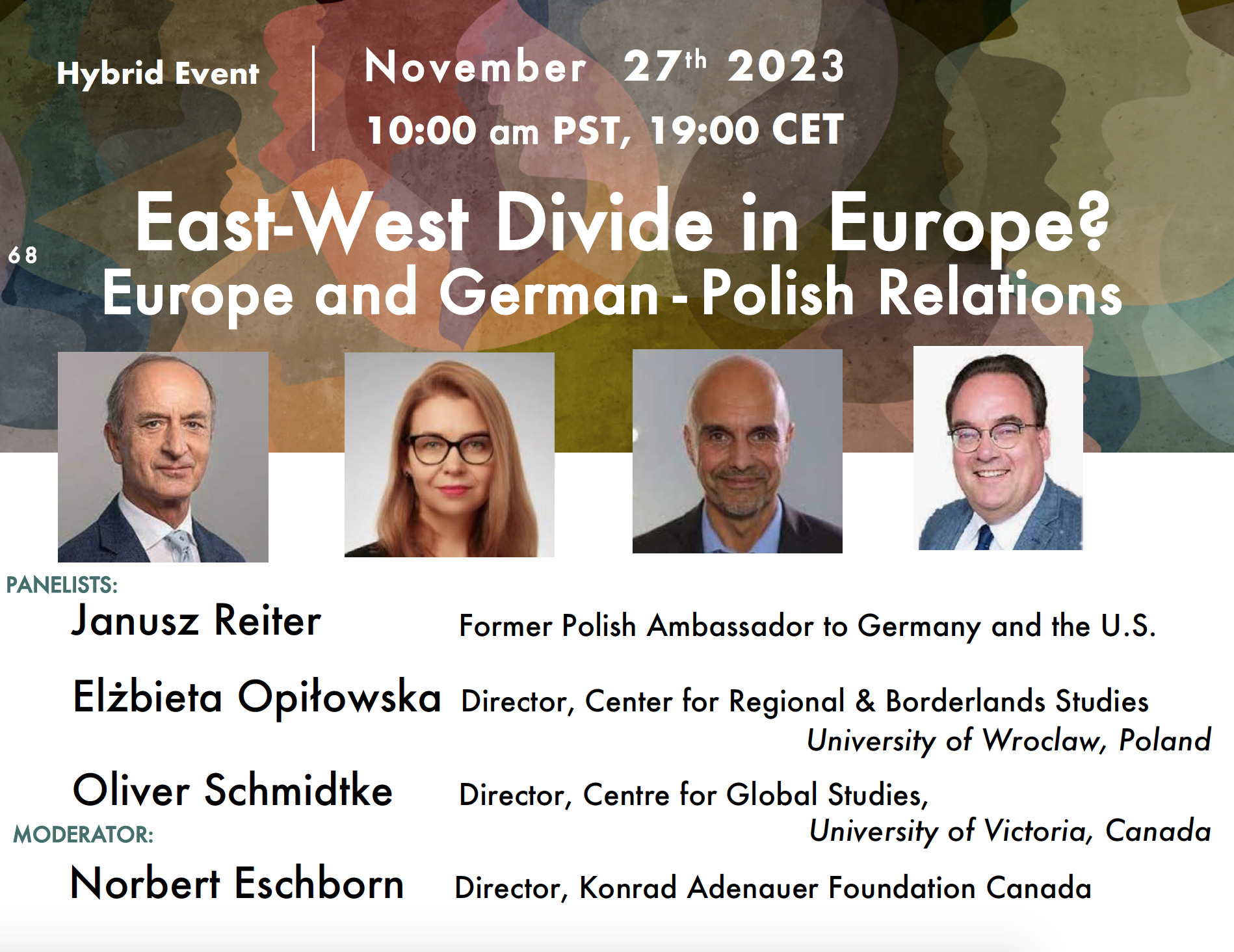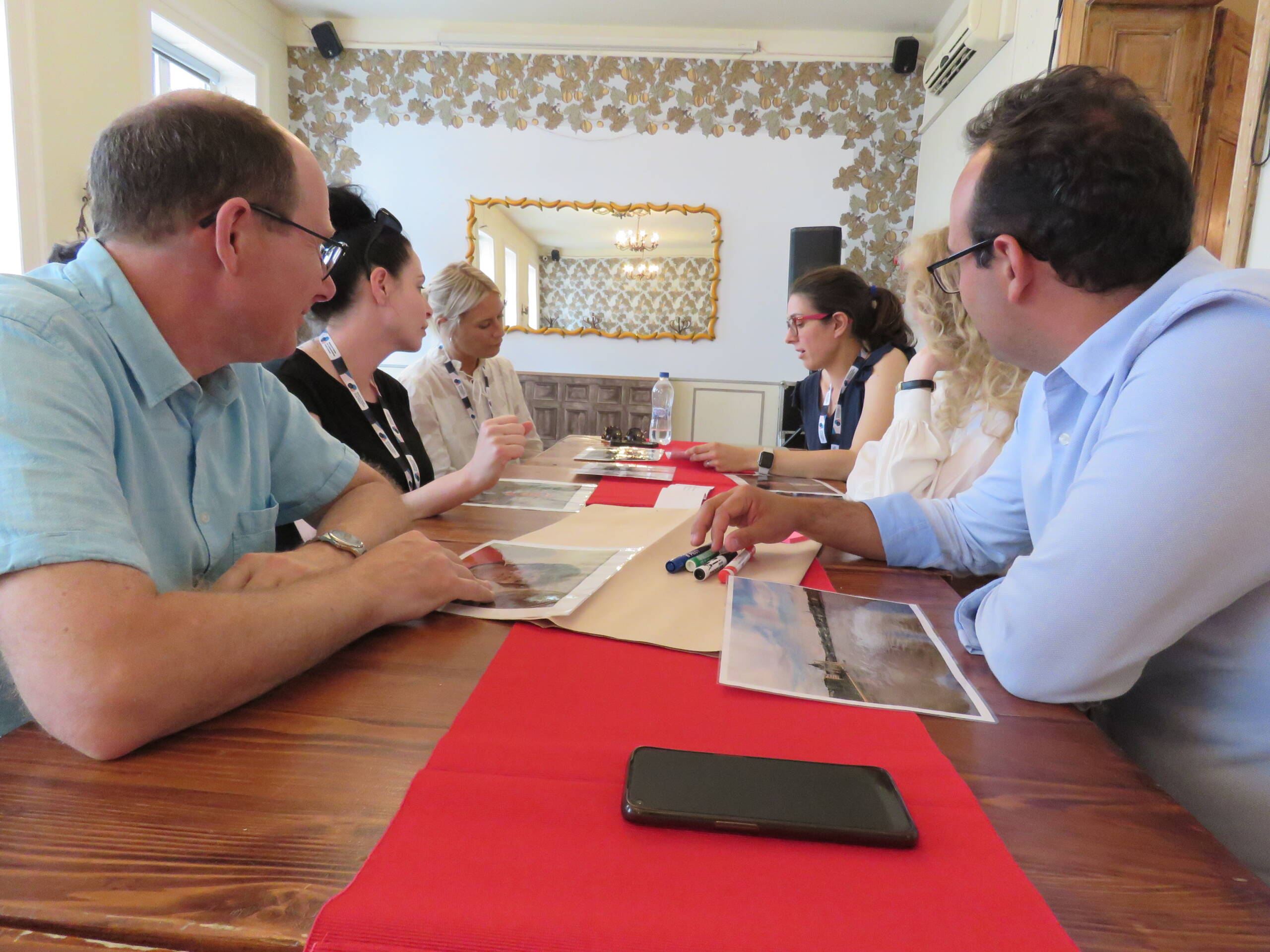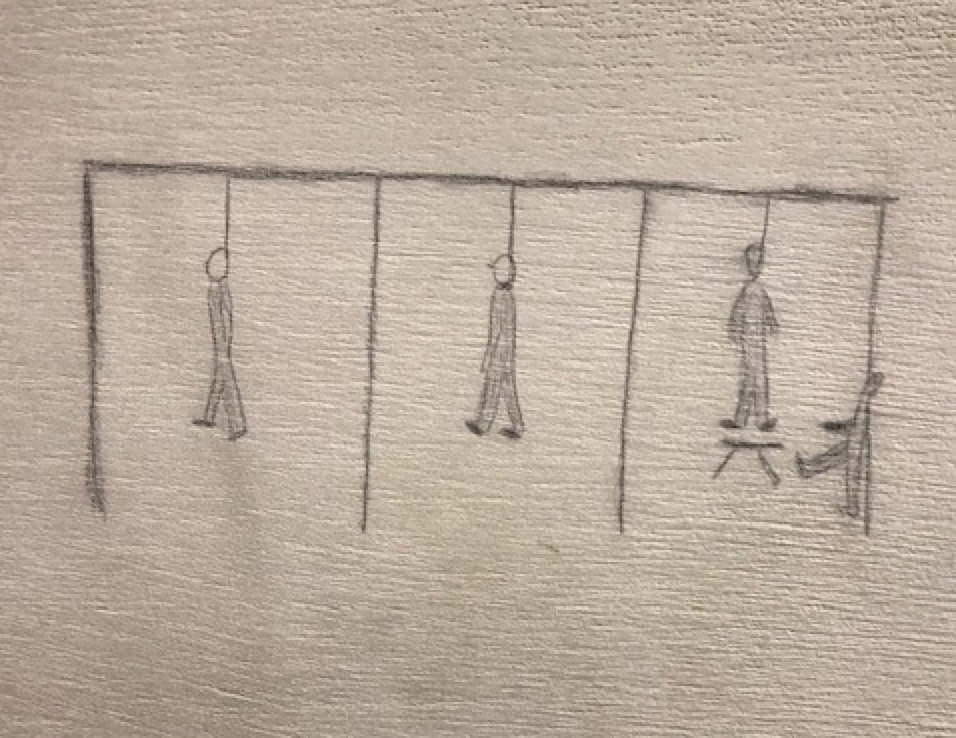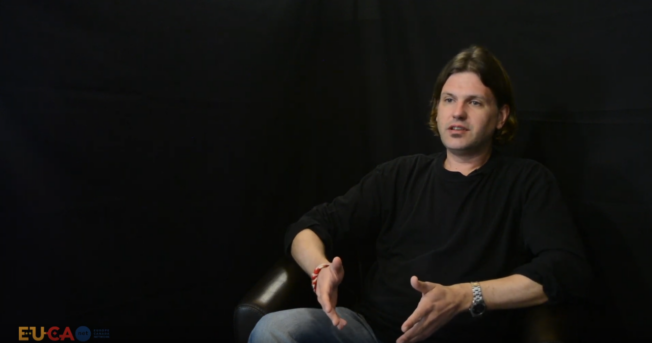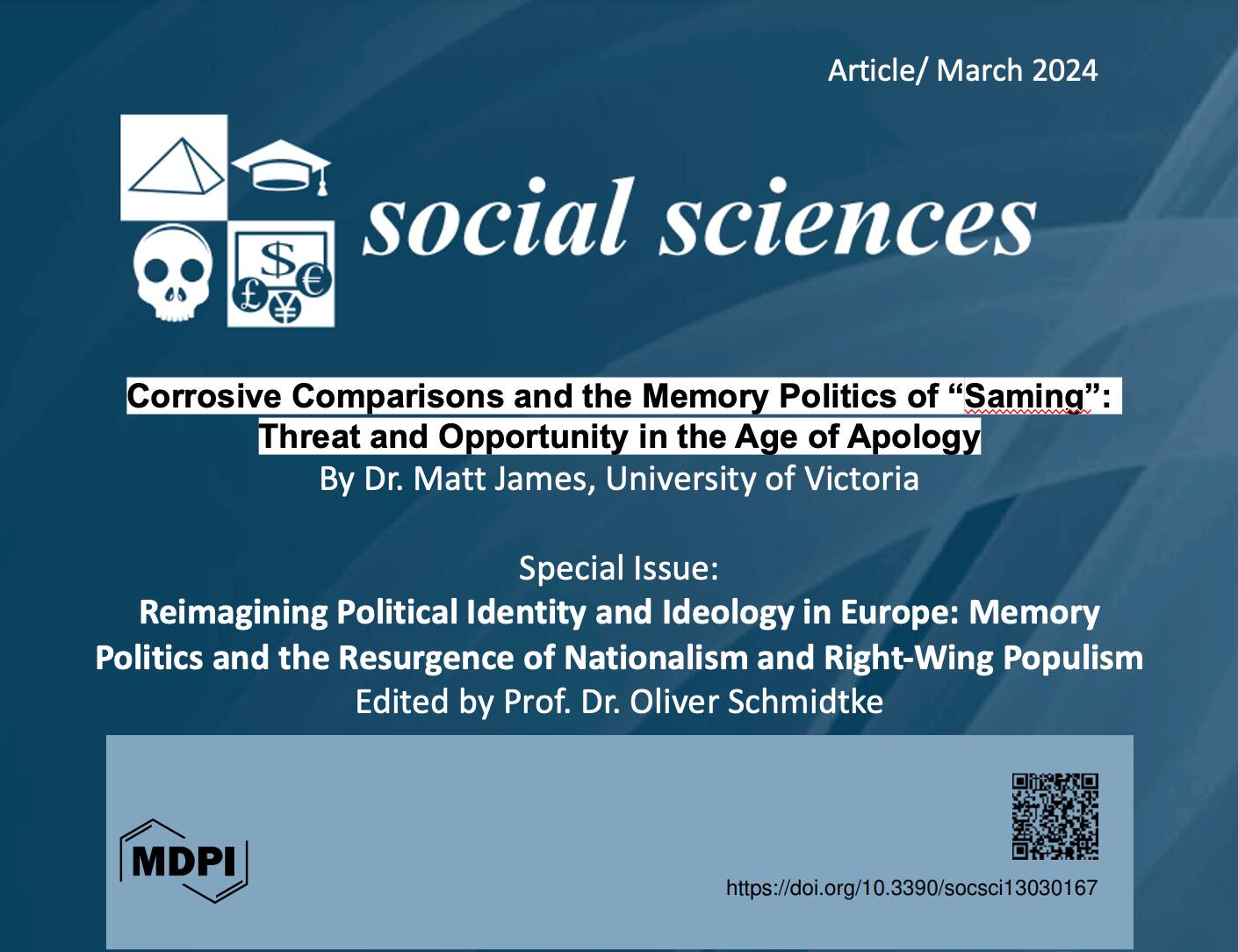Engaging Generation Z in Topics of Collective Memory & History: Thoughts from the 2023 European Memory Politics Conference
On June 14th, 2023, I had the privilege of co-presenting with Beate Schmidtke at the European Memory Politics Conference which took place at Eötvös Loránd University (ELTE) in Budapest, Hungary. Our presentation, part of Panel II: Commemorating the Past Across Europe: Remembrance and Memorialization in Education, was titled “Collective Memory in the 21st Century: Learning with and from the Young Generation.” As the title suggests, during our presentation Beate and I discussed how to engage youth, specifically Generation Z, with topics such as collective memory, memory politics, and the Holocaust.
Beate began by speaking about the disturbing decline in knowledge regarding the Holocaust among youth in Europe, noting that this downturn parallels an increase in antisemitism. For example, a 2018 survey of 7000 Europeans shows that one third of respondents know “just a little or nothing at all about the Holocaust.” The same amount of people believe Jews to be “too influential in political affairs around the world.” The statistics are alarming, and when confronted with them, one cannot help but think of Winston Churchill’s warning that “those that fail to learn from history are doomed to repeat it.”
As a historian, I know that we cannot force people to care about history. Consequently, coming up with new ways of encouraging youth to care about historical events is something that I think about often. How do we make history seem alluring and relevant to students without trivializing it? How can we make clear the significance of history to those who may not realize the importance of its lessons? And how do we teach about collective memory to those who do not fully understand how the past informs the present? During the 2023 European Memory Politics Study Tour, I was pleased to find some answers to these questions.
I bring a unique perspective to this topic as someone who has been both an educator and a student simultaneously. I work as a Sessional Lecturer at UVic and, reflecting my research background, am deeply passionate about Holocaust awareness and education. However, I participated in the European Memory Politics Study Tour as a student, which means that I also hold the perspective of a learner. It was through this dual lens that I experienced the study tour and evaluated some of the types of teaching designed to foster student engagement that Beate and I discussed during our presentation. For instance, Beate outlined a few strategies that educators can adopt in an effort to spark engagement with the past and collective memory among young people:
- The use of more accessible language in discussions of history and memory politics
- Linking debates about collective memory politics to specific examples that young people can relate to
- Using new forms of technology to teach about the past
- Bringing learners into discussions about politics, history, and memory so that they may share their own thoughts and perspectives
- A focus on experiential learning, including visiting sites of memory
- Seeking feedback from learners to discover which teaching strategies are the most effective
To demonstrate what these efforts might look like in practice, Beate introduced EUCAnet and some of the organization’s projects. She used EUCAnet’s booklet “Using the Past to Define the Present: An Introduction to Memory Politics in Canada & Europe” and the accompanying introductory video as examples of these strategies at play — both resources are being used in schools across Europe to teach youth about memory politics in the context of both Canada and the EU. I encourage you to take a look at the booklet to see how it adopts some of the strategies outlined above.
During the 2023 European Memory Politics Study Tour, I saw and experienced firsthand the effectiveness of the methods Beate mentioned. In fact, my contribution to our panel was a discussion of some of the ways in which students engaged with memory politics during the course of the study tour, which integrated these teaching strategies. In our presentation, I explained that over the course of 3 weeks, students on the study tour visited various sites of memory in Austria, Poland, Hungary, and Italy. We met with a variety of players involved in memory politics in these countries, including politicians and grassroots activists. I also elaborated on the types of learning we experienced in each country. In Vienna, students grappled with topics of current right-wing movements and anti-Semitism in the city and Europe as a whole through guided tours, meetings with members of the Austrian Ministry of Education, dinner with activists, and participation in debates about contemporary memory politics. During a tour of the University of Vienna, students met with local artists and discussed how to deal with contested monuments — a debate that is ongoing here in Canada.
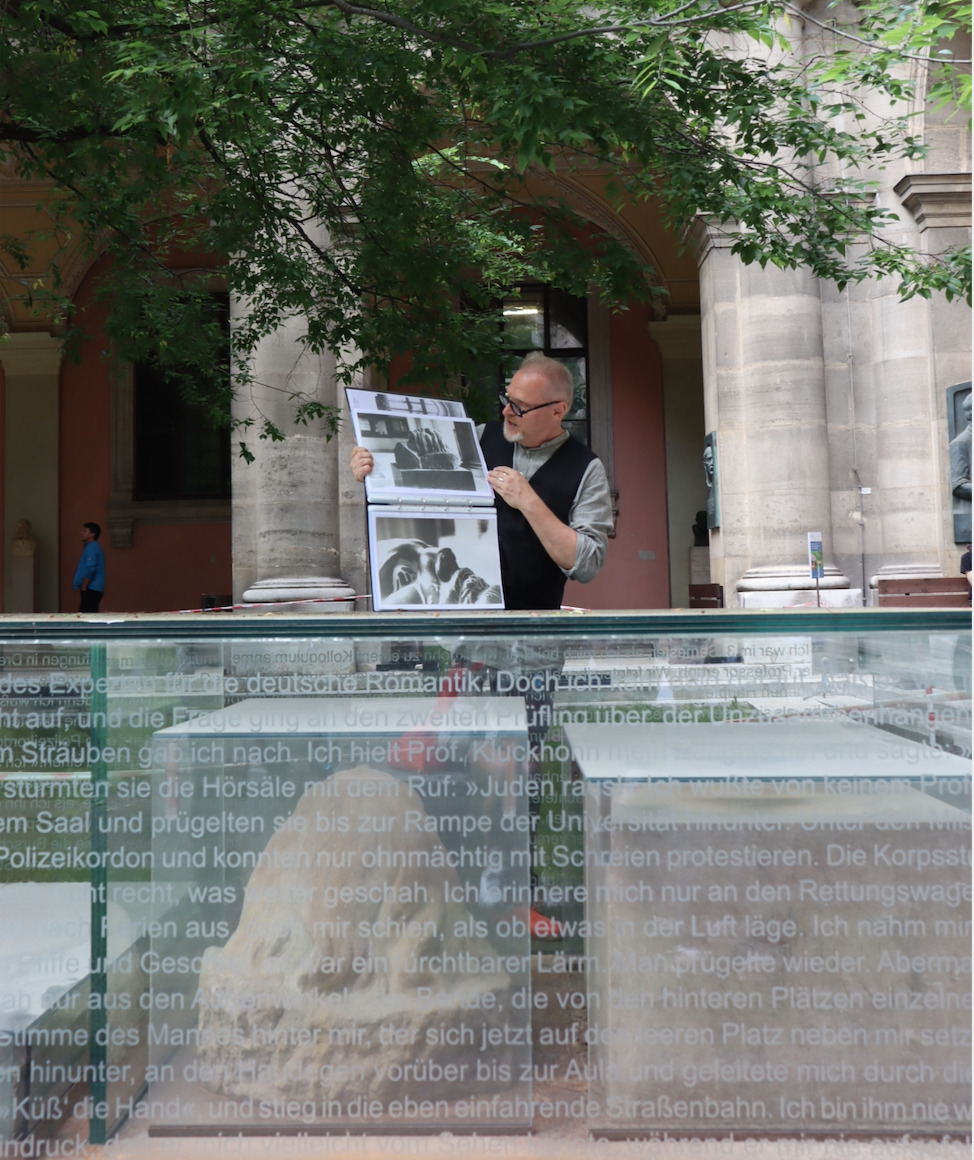
In Poland, experiential learning was front and centre when we visited the Auschwitz-Birkenau Memorial and Museum. Over the course of two days, students spent a total of 8 hours at Auschwitz-I and Auschwitz II-Birkenau. In addition to journaling about the tour, students participated in debriefs and analyzed our experiences in an activity using photos taken at the camps (you can read more about that here. We also got the rare opportunity to meet a survivor and hear her story.
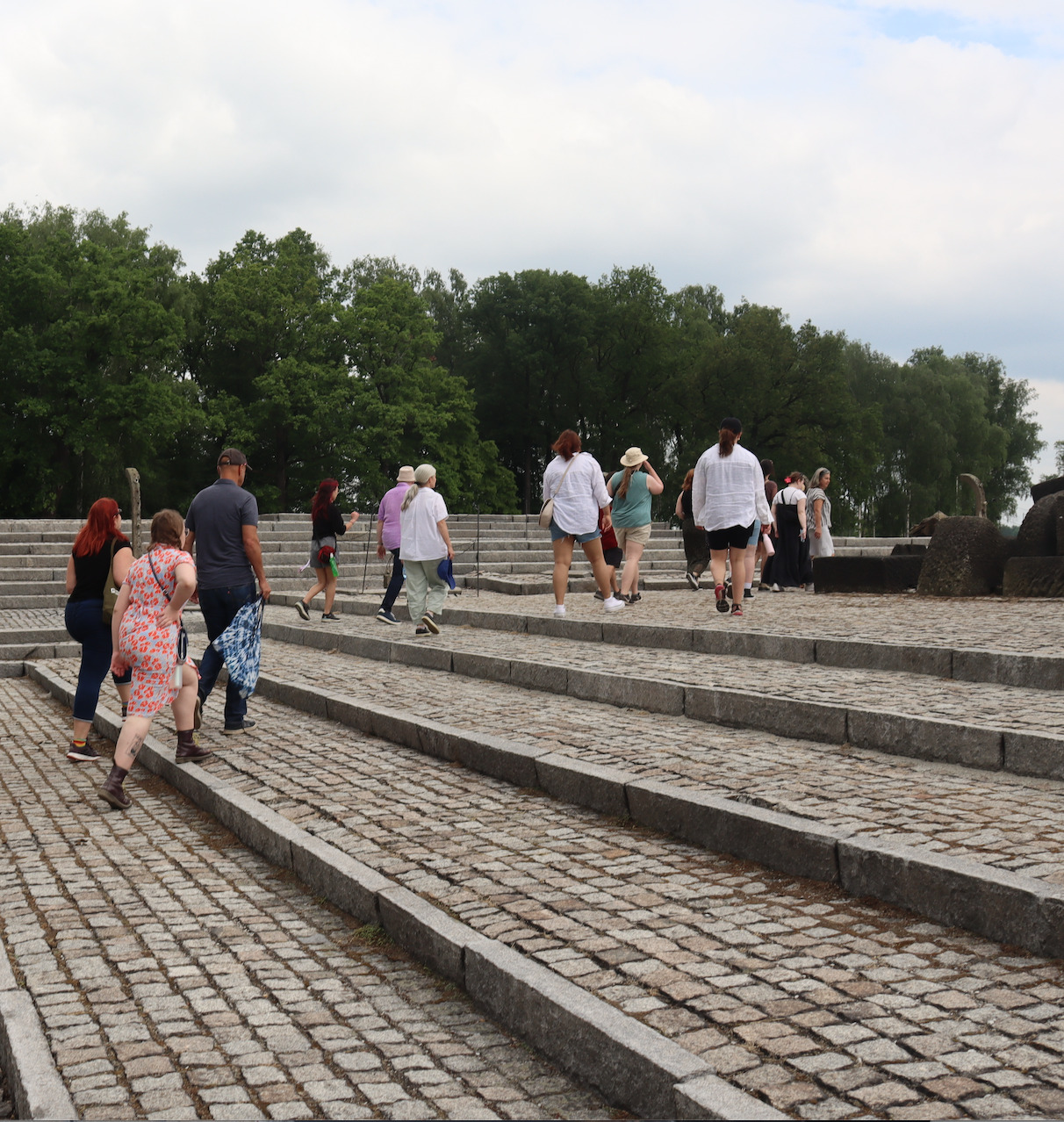
In Hungary, students were exposed to and participated in scholarly debates about memory politics during the European Memory Politics Conference. We also utilized technology to engage with survivor testimony during an immersive IWalk. Finally, in Italy, students participated in a guided tour of Trieste, which focused on the city’s history of fascism and resistance to it.
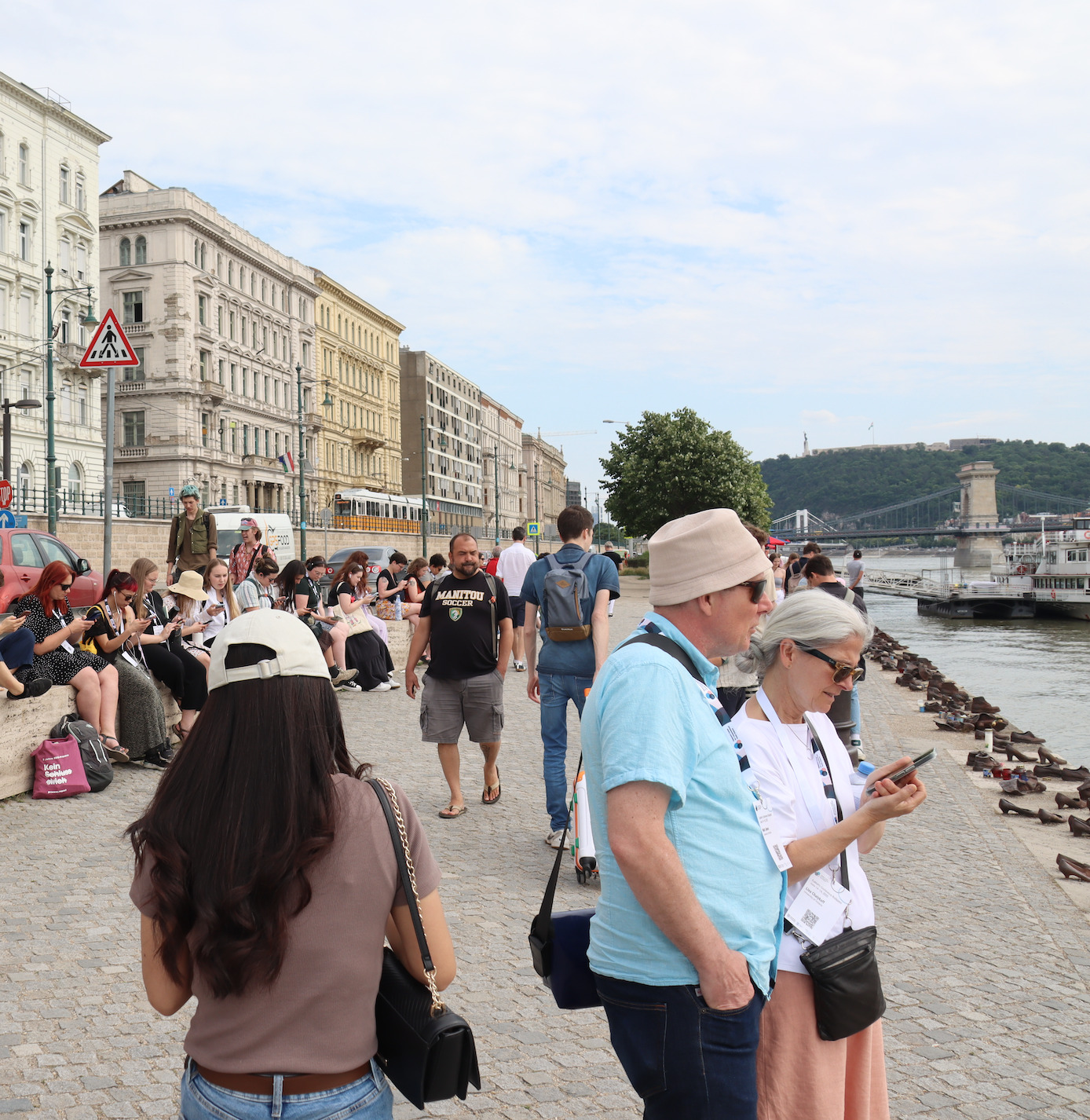
There wasn’t enough time to unpack each of these activities in full during our short presentation, but the list I provided demonstrates the multiple types of learning that took place over the course of the tour. I concluded by describing the various ways in which students shared what they learned during the study tour with others. For example, students blogged about their experiences throughout the tour and beyond. They also took part in public outreach, such as creating podcasts and teaching materials, reflected artistically with poems, art, and photography inspired by the sites and experiences from the study tour, and video interviews. Soon, students will be invited to participate in a brochure about new learning approaches reflecting on the study tour.
Teaching Generation Z about the past and its connections to the present is not hopeless. In fact, as Beate and I outlined in our presentation, there are a medley of new approaches that, throughout the course of this study tour, have proven to be successful in engaging youth with history and memory politics. If you, like me, lose sleep over statistics that show a rise in antisemitism and a decline in knowledge about the Holocaust, have confidence that new approaches to teaching about these topics can change this trend. If you need proof, look no further than the materials created by students who took part in the 2023 European Memory Politics Study Tour — many of which are featured right here on eucanet.org.
Kästle Van Der Meer graduated from the University of Victoria’s History MA program in November 2022. Her thesis research under the supervision of Dr. Kristin Semmens investigated Jewish resistance to sexualized violence in Nazi forced labour, concentration, and death camps. Reflecting her BA in Gender Studies and History, Kästle’s other research interests include gender and sexuality in the Holocaust. Kästle currently works an instructor in the Academic and Technical Writing program at UVic.
